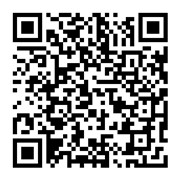什么的英文怎么读_什么事的英文怎么读

你是否曾身陷过这样的尴尬境地:当你想表达“我有事”时,脱口而出的却是“I have things”?这一瞬间,不仅外国友人可能会感到困惑,有时连你自己都会被这股“中式英语”的魔力所惊到。今天,就让我们一起扫除英语中的那些“雷区”,让你的英文表达从此更加自然、地道!
在英语中,“我有事”可以有多种表达方式,以下是一些常见的表达及其对应的中文含义和例句:
1. “I have some business to attend to.”
这表示你手头上有一些需要处理的公务。例句:很抱歉,我必须离开去处理一些事务。“Sorry, I must leave to attend to some business.”
2. “I have matters that require my attention.”
这表示你有一系列需要关注和处理的事情。例句:今天我有很多事情要处理。“Today, I have matters that require my attention.”
3. “I'm occupied with something.”
这表示你目前正忙于某事。例句:我现在不能陪你聊天了,我忙着呢。“I'm occupied with something right now, so I can't chat with you.”
4. “I have a few things on my plate at the moment.”
这表示你目前有一些事情需要处理,但是并未特别指出具体是什么。这是一种较为委婉的说法。例句:我最近事情挺多的,等我处理完再和你聊。“I have a few things on my plate at the moment, so I'll chat with you after I finish them.”
我们还会遇到一些关于“thing”的俚语表达。比如:
对于“小事一桩”,英文中可以用“It's no big deal”或“It's just a minor thing”来表达。
当事情正在好转时,我们可以说“things are looking up”,即“情况正在好转”。
当形容某物是真正的、高质量的时,我们可以使用“that's the real thing”或“it's not a fake”。
而当某物或体验超乎寻常时,我们可以用“it's out of this world”来形容。




